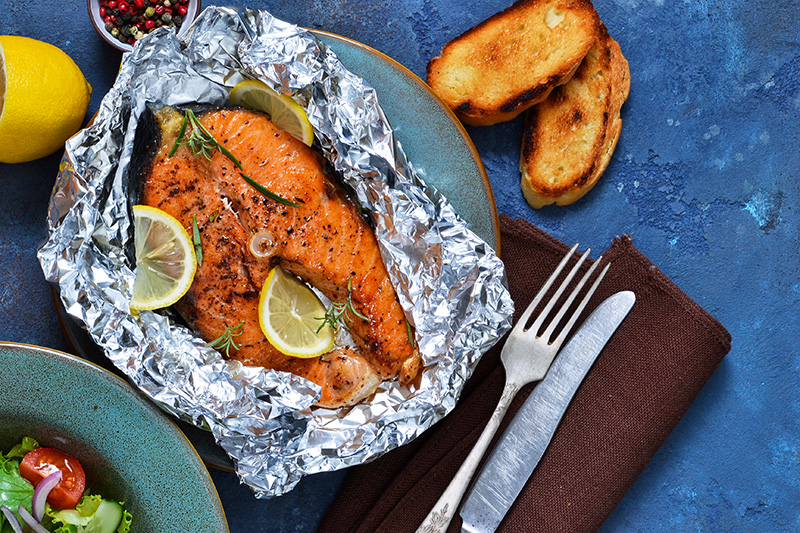It's easy to get answers about health and nutrition! Just send your question by email to [email protected] and Dr. Harlan will respond to selected questions of general interest. Answers will be posted in the Ask Dr. Gourmet newsletter (sign up now!) and archived in the Ask Dr. Gourmet section of the website.
Please note that the Ask Dr. Gourmet feature is restricted to questions regarding food and nutrition. Due to the many questions we receive, not all questions may be answered. For more specific questions about your individual health, please contact your doctor. About Timothy S. Harlan, MD, FACP, CCMS | Terms of Use | Privacy Policy
Ask Dr. Gourmet
When choosing foods to help lower my cholesterol, should I look at the saturated fat or the cholesterol in a food?
I recently had my cholesterol checked and my doctor said that everything is ok except that my LDL is high. I'm confused when I look at the nutritional information on foods. I'm finding a lot of foods that may be low in cholesterol but high in saturated fat OR they are low in saturated fat but high in cholesterol.
When choosing foods to help lower my LDL, is it better to go by the saturated fat or the cholesterol number?
Dr. Gourmet Says...

It is always better to use saturated fat as your guide. The amount of cholesterol in the food you eat is important but we now know that it has nowhere near the impact of the types of fat you eat. (Here's more information on cholesterol in food.)
The key is to choose recipes, foods and ingredients that are low in saturated fat. Choose lean meats and eat less red meat. Use butter and fats sparingly and replace them with oils such as olive oil, canola oil, and grapeseed oil. These fats are high in monounsaturated fats and eating more of this type of fat has been shown to have a significant impact on cholesterol profiles. We know that fish that are high in such monounsaturated fats like salmon, tuna, and halibut are great choices as well.
This style of diet is known as the Mediterranean diet. (Here's more information on following a Mediterranean-style diet at home.) Small changes like more monounsaturated fats, less red meat, and more fruits, vegetables, and whole grains, as in a Mediterranean-style diet, can have a major impact on your cholesterol and risk of heart disease, stroke and cancer.
Thanks for writing,
Timothy S. Harlan, MD, FACP
Dr. Gourmet
